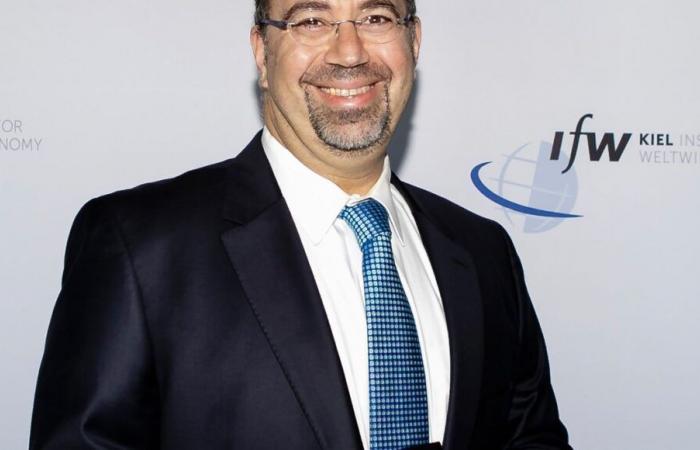Hello everyone, hello everyone. On this beautiful autumn day in New England, I’m taking a few minutes’ break from my pre-election panic, to tell you about Daron Acemoglu, my colleague and friend. Daron has just received the Nobel Prize in Economics, with his co-authors Simon Johnson and James Robinson. The prize was awarded to them for their work on the persistence of institutions, but we have already heard a lot about it this week (including on this channel).
So I’m going to talk to you about more recent work. Two of the other Nobel Prizes were awarded this year to researchers in artificial intelligence: The Nobel Prize in Physics to Geof Hinton and John Hopfield for their work on neural networks, and the Chemistry Prize to two Google employees Deepmind and to a biochemist for their use of artificial intelligence to study protein folding. This reflects the enthusiasm, not only in Stockholm, for artificial intelligence, this new technology which seems to be able to penetrate all aspects of our existence. However, it turns out that the question of the impact of technologies on our lives has always been one of Daron Acemoglu’s research subjects. This has naturally led him, in recent years, to take a close interest in the possible effects of artificial intelligence. And like all subjects at the moment, this brings us right back into the current politics of the United States (and France as well).
His latest book with Simon Johnson, Power and Progress, analyzes several examples of the introduction of new technologies in history, from agriculture to artificial intelligence, including the industrial revolution and windmills. The main thesis seems, as is often the case, obvious in hindsight, but deserves a moment’s attention. A new technology, even if it increases productivity, does not necessarily increase the well-being of the majority of workers: if its gains are captured by a small elite, it can even lead to the impoverishment of (almost) all. There is no inevitability, neither positive nor negative. The effects of a new technology depend on the policy choices made around that technology: the unions that protect working conditions, the investment in education that prepares workers, the competition policy that determines whether a small number of The actors take control, taxes which re-distribute the gains.
However, since the 1980s in the United States, all these safeguards have gradually been erased, underlines Acemoglu, and this has led artificial intelligence to develop in the worst possible way. In particular, a tax system which favors an increasingly obscene concentration of fortunes, coupled with a very lax attitude towards the emergence of GAFAM giants, has completely perverted the motivations of those who develop technologies. The goal is to be the first to develop technologies that aim to replace humans, not ones that might help them be more efficient at their jobs or more creative. The transformation of Elon Musk into a pro-Trump buffoon is the tip of a worrying iceberg: that of the slide of Silicon Valley towards the Republicans in general, Trump in particular. These new “robber barons”, like the Rockefellers of yesteryear, favor the accumulation of wealth in the short term, taking the risk (admitted and calculated) of the collapse of society in the medium and long term.






